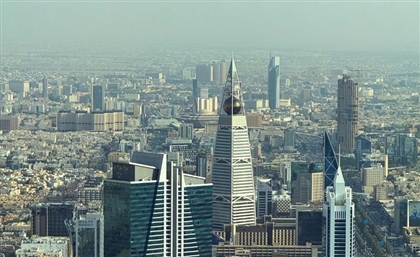Kimyona: An Enigmatic Speakeasy Concept in Riyadh by Azaz Architects
Luring visitors through a Japandi-inspired gallery, the design celebrates Asian cuisine with a dark glow.
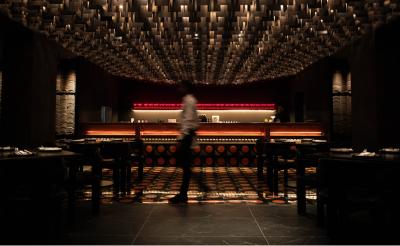
Nestled within an architectural gem designed by the legendary Japanese architect Kenzo Tange, an enigmatic speakeasy concept has emerged amidst Riyadh’s monumental skyline. Once home to travel agencies, the retail space on the ground floor of this residential building has been transformed by the internationally acclaimed firm Azaz Architects into the atmospheric restaurant and bar, Kimyona.
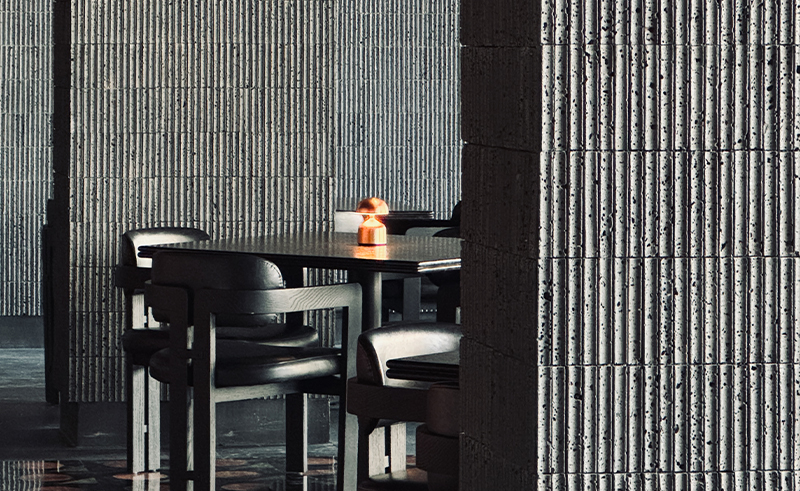
The name ‘Kimyona,’ meaning “strange” or “quaint” in Japanese, embodies the designer’s philosophy, infusing a touch of whimsy into this brutalist structure. “Inspired by analog black-and-white photography, the design aims to translate the process of photo development into a spatial experience,” Shahad Alazzaz, founder of Azaz Architects, tells SceneHome.
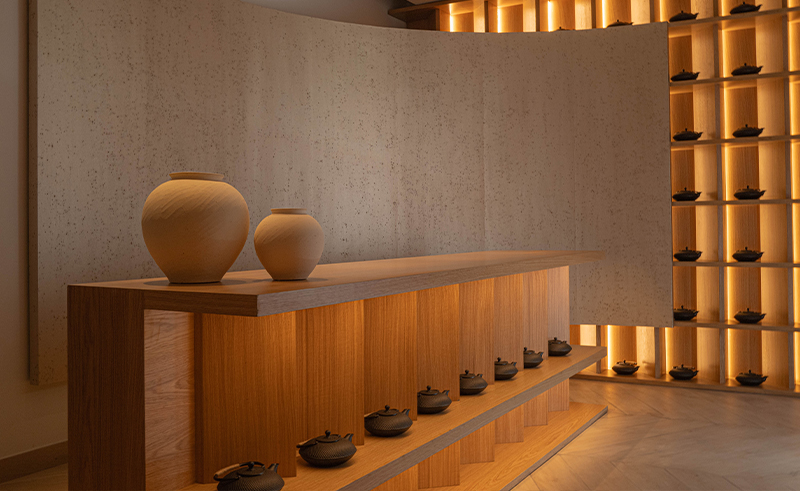
The restaurant’s facade hints at the mystery within, its window showcasing a lobby inspired by a photographer’s gallery. Bright lighting, neutral tones, and light wood textures evoke Japandi design, setting an artful and inviting tone for your dining experience.
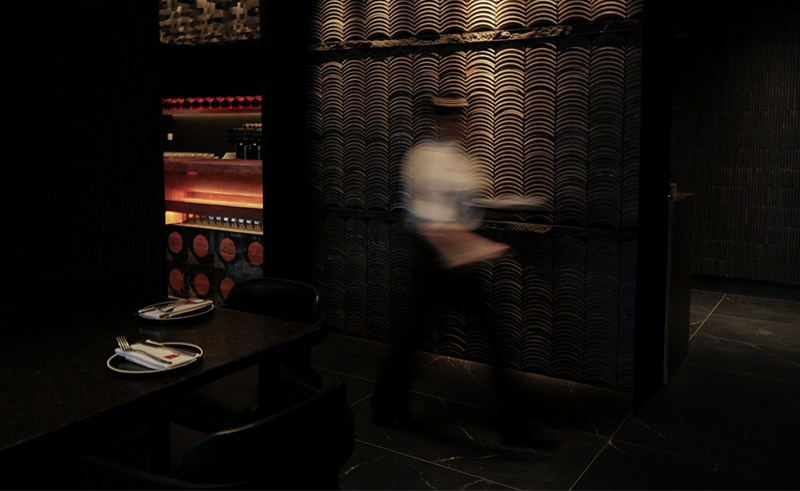
Tucked behind one of the art pieces, a hidden passage reveals itself, leading you to the main dining hall - designed to evoke the photographer’s darkroom. The transition is dramatic, conjuring a sense of isolation reminiscent of a scene from an ’80s movie, intensifying the sensory experience. “Framed by glass brick glazing, the dining experience draws focus inward, minimising distractions from the outside,” Alazzaz explains.
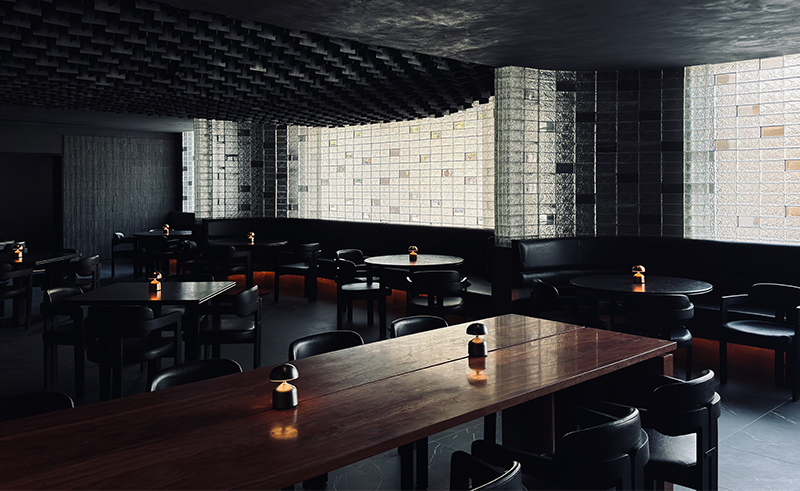
Inside the dining hall, the glass brick walls offer glimpses into the restaurant, while their translucency creates a play of light and shadow, adding a transcendent ambiance. Curved black leather couches wrap around the glass walls, forming intimate seating alcoves, while a light backdrop enhances the privacy of these spaces.
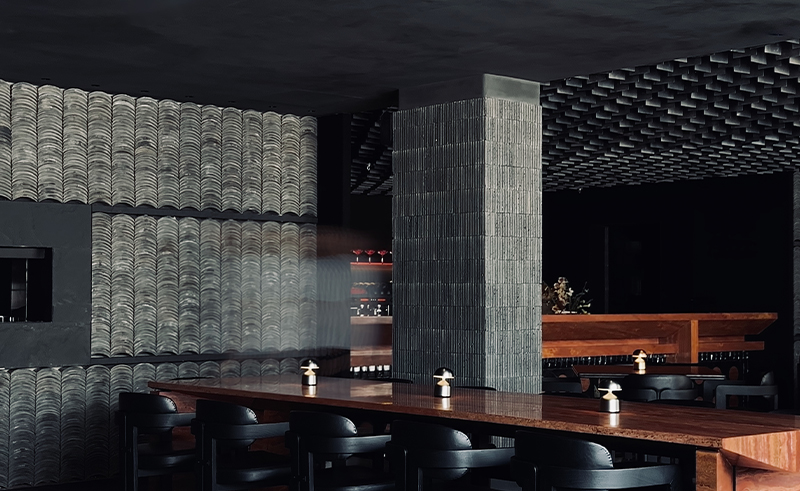
On the opposite sides of the room, walls with a stone-like finish mimic the ambiance of an ancient Japanese cabin. Textured like layered scales, these walls add rhythm to the space and deepen its moody atmosphere.
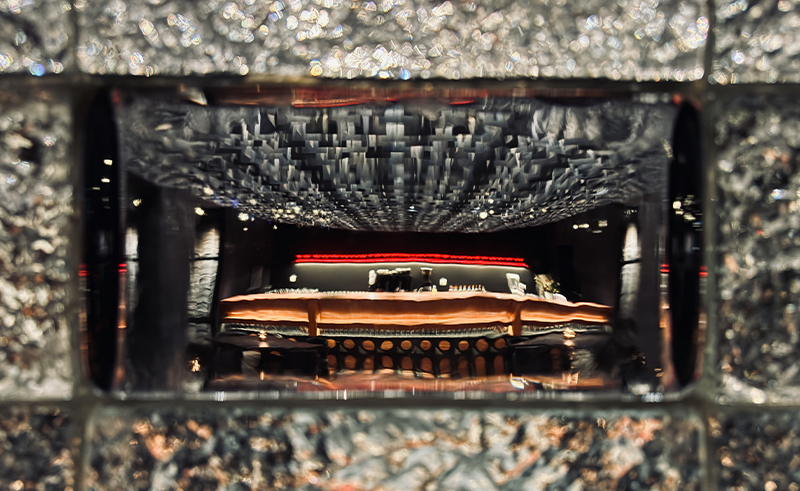
“The design celebrates the brand’s Asian cuisine with reclaimed Chinese ceramic roof tiles on the walls, enriching the texture and contrasting with the brand’s minimalist palette of black, white, and red,” says Alazzaz. Dangling from the ceiling, a steel structure reminiscent of photos hanging in a darkroom draws your gaze toward the bar, illuminated by a red glow. This neon-infused focal point evokes the cinematic essence of an intimate underground tavern.
Photography Credit: Mansor Alsofi and Abdullah Alazzaz
- Previous Article Italian-Palestinian Duo No Input Debuts Eponymous Electro EP
- Next Article A Century of Hospitality: Discover Egypt's Historical Hotels
Trending This Week
-
Dec 23, 2025








